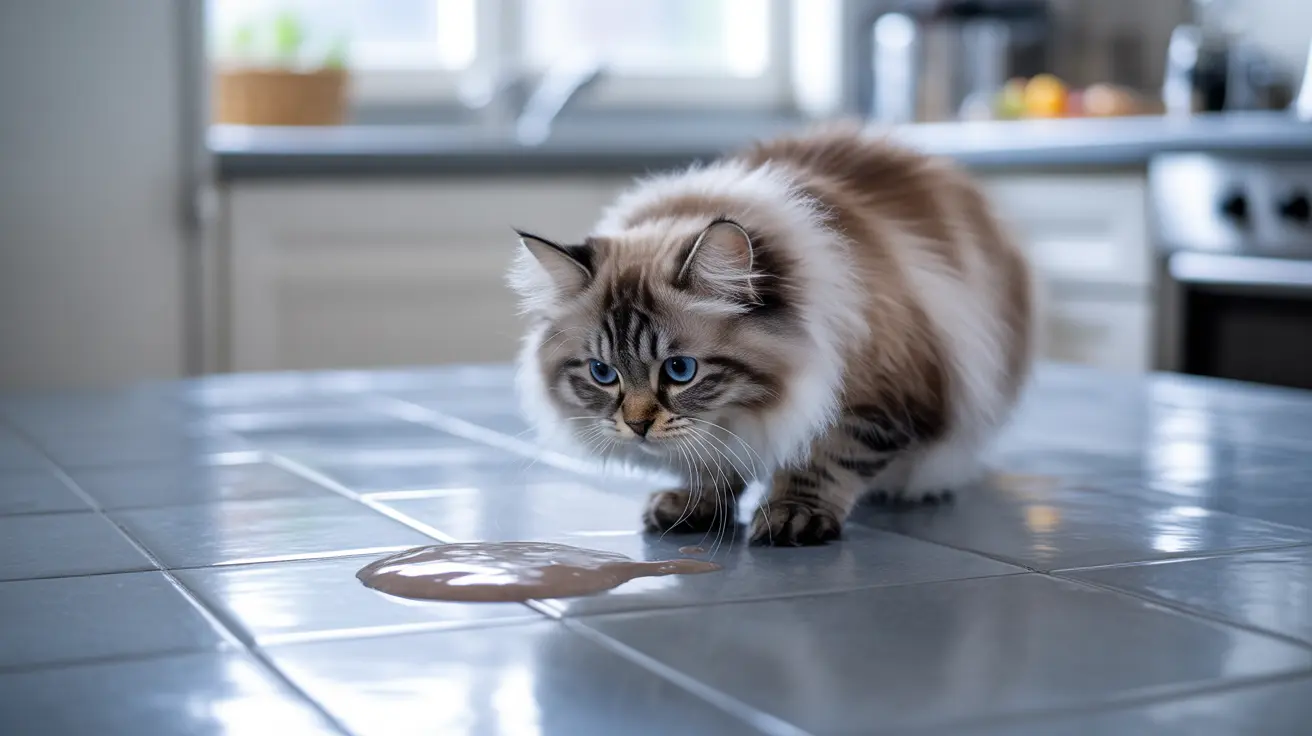If you've ever witnessed your cat eating their own vomit, you might have been both puzzled and concerned by this seemingly unpleasant behavior. While it may appear gross to us humans, there are actually several logical explanations for why cats engage in this common habit.
In this comprehensive guide, we'll explore the scientific reasons behind this behavior, help you understand when it's normal versus concerning, and provide practical advice for managing your cat's digestive health.
The Science Behind Why Cats Eat Their Vomit
The primary reason cats eat their vomit is surprisingly straightforward: recently vomited food often looks, smells, and tastes very similar to their regular meals. This is especially true when the food hasn't been in their stomach long enough to be fully digested.
Cats have highly developed sensory systems, particularly when it comes to smell. Fresh vomit containing partially digested food still carries appealing food aromas that cats find attractive. Additionally, the warmth of recently expelled food can make it even more enticing to your feline friend.
Natural Instincts and Survival Behaviors
From an evolutionary perspective, cats are programmed not to waste potential food sources. In the wild, where meals aren't guaranteed, consuming regurgitated food could mean the difference between survival and starvation. This instinct remains present in our domestic cats, even when they have reliable access to food.
Interestingly, cats are selective about what type of vomit they'll consume. They typically only show interest in vomit containing recognizable food particles, avoiding bile or stomach acid-only vomit.
Common Causes of Cat Vomiting
Speed Eating and Portion Control
One of the most frequent causes of vomiting in cats is eating too quickly or consuming too much food at once. When cats eat rapidly, they may swallow air along with their food, leading to regurgitation shortly after meals.
Medical and Digestive Issues
Various health conditions can cause vomiting in cats:
- Hairballs (especially in long-haired cats)
- Food allergies or intolerances
- Inflammatory bowel disease
- Gastric irritation
- Parasites
- More serious conditions like kidney disease or hyperthyroidism
When to Be Concerned
While occasional vomiting and subsequent consumption of vomit might be normal, certain situations warrant veterinary attention:
- Frequent vomiting (more than once per week)
- Vomiting accompanied by lethargy or appetite changes
- Blood in vomit
- Significant weight loss
- Diarrhea occurring alongside vomiting
- Changes in behavior or energy levels
Prevention and Management Strategies
To help reduce instances of vomiting and vomit consumption, consider these practical steps:
- Use slow-feeder bowls to prevent rapid eating
- Feed smaller, more frequent meals throughout the day
- Maintain a regular grooming routine to reduce hairballs
- Keep potentially harmful plants and objects out of reach
- Stick to a consistent, high-quality diet
Frequently Asked Questions
Why do cats eat their vomit after throwing up?
Cats primarily eat their vomit because partially digested food still maintains its appealing taste and smell. This behavior is also linked to natural survival instincts that prevent food waste.
Is it normal or safe for cats to eat their own vomit?
Yes, it's generally normal and safe for cats to eat their vomit, particularly when it contains recently consumed food. However, frequent vomiting should be evaluated by a veterinarian.
What causes cats to vomit frequently, and when should I see a vet?
Common causes include eating too quickly, hairballs, and dietary issues. Seek veterinary care if vomiting occurs more than once weekly or is accompanied by other concerning symptoms.
How can I prevent my cat from vomiting due to eating too fast?
Use slow-feeder bowls, puzzle feeders, or distribute meals into smaller portions throughout the day to help prevent rapid eating and subsequent vomiting.
Does eating vomit indicate hunger or a medical problem in cats?
Usually, eating vomit is an instinctive response rather than an indication of hunger or illness. However, if accompanied by increased appetite or other symptoms, consult your veterinarian.
Understanding why cats eat their vomit helps us recognize when this behavior is normal versus concerning. While it may seem unpleasant to us, it's typically a natural response rooted in feline biology and instinct. However, always monitor your cat's overall health and consult with your veterinarian if you notice concerning patterns or symptoms.






